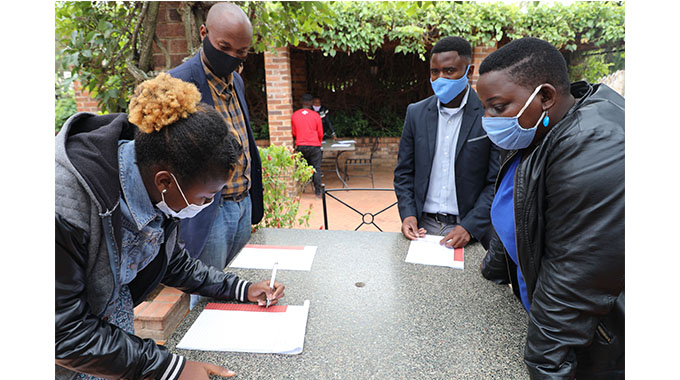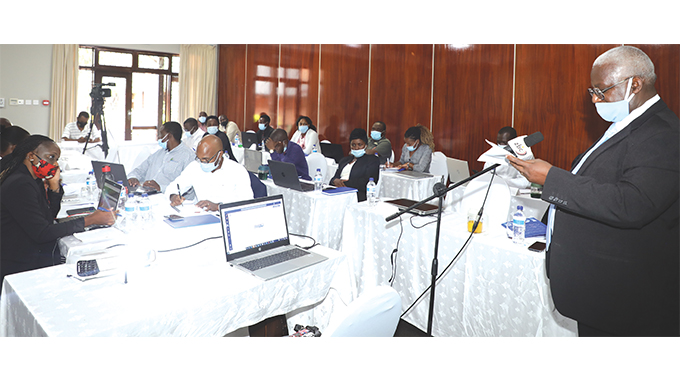Govt ups bid to increase youth participation in exports

Business Editor
YOUTH entrepreneurs have the potential to drive increased export earnings for Zimbabwe with the Government, through ZimTrade, scaling up efforts to capacitate the budding business owners.
Increasing youth participation in the mainstream economy and decision-making is at the heart of the newly launched National Development Strategy (NDS1 2021-2025), which is aligned to the country’s upper middle-income vision by 2030.
Unlocking the youth dividend and achieving inclusive growth are also key tenets of the global sustainable development goals (SDGs).
Zimbabwe has the advantage accruing to most developing economies — the youth dividend. Official statistics show that out of an estimated 14.8 million population, about 53,6 percent is below 20 years while 62,9 percent is below 24 years.
With more youths being involved in the small to medium enterprise (SMEs) sector, the Government has stressed the need to help formalise and position such players for exports. ZimTrade has responded by introducing an “Eagles Nest” programme, which specifically targets youth entrepreneurs countrywide.
A two-day export marketing and incubation programme is underway in Bulawayo for youths in the southern region who have been shortlisted to benefit from tailor-made training modules. These are being trained in foundations for export marketing, finance handling and how to tap into digital market opportunities.
Yesterday ZimTrade had an interactive engagement at a local hotel with youth business leaders drawn from diverse sectors such as manufacturing, farming, construction, service sector, clothing design and information and communication technology.
ZimTrade associate trainer, Mr Keith Heywood, said the young entrepreneurs were being assisted in developing global brands, trade competitiveness and crafting strong marketing strategies for local and export business, among others.
“The concept of creating these youth export incubation hubs is brilliant. From an assessment of the groups we have, there is great potential because these are already into businesses,” he said in an interview.
“I see this intervention as a big project, the youths are already in business and what they need are tools and skills to grow.”
Commenting, Mr Velile Dube from ZimTrade said the entrepreneurs were being capacitated to tap into the export market in the region and globally.
“We want them to grow local and then export. We are imparting them with skills and knowledge,” he said.
During training the participants discussed a range of factors that impact on export competitiveness such as branding, quality and standards as well as marketing skills. Mr Dube said more capacity building programmes would be rolled out until the youths start realising export gains.
On Wednesday, Foreign Affairs and International Trade Minister, Dr Sibusiso Moyo, emphasised the need for the local private sector, including small businesses to position themselves for export gains under the African Continental
Free Trade Area (AfCFTA), whose implementation is scheduled to begin next month.
Under the NDS1 blueprint, the Government acknowledges the importance of building the culture of hard work among the youth, the principle that hard and honest work pays.
“There is need to develop a mental construct for the youth in respect of the importance of hard honest work and that development in other countries has been as a result of this most productive and most energetic group in society,” reads part of the document, which was launched by President Mnangagwa three weeks ago.
NDS1 specifically seeks to increase the number of youths who access empowerment opportunities in all sectors of the economy from 16 000 in 2020 to 200 000 by 2025.








Comments